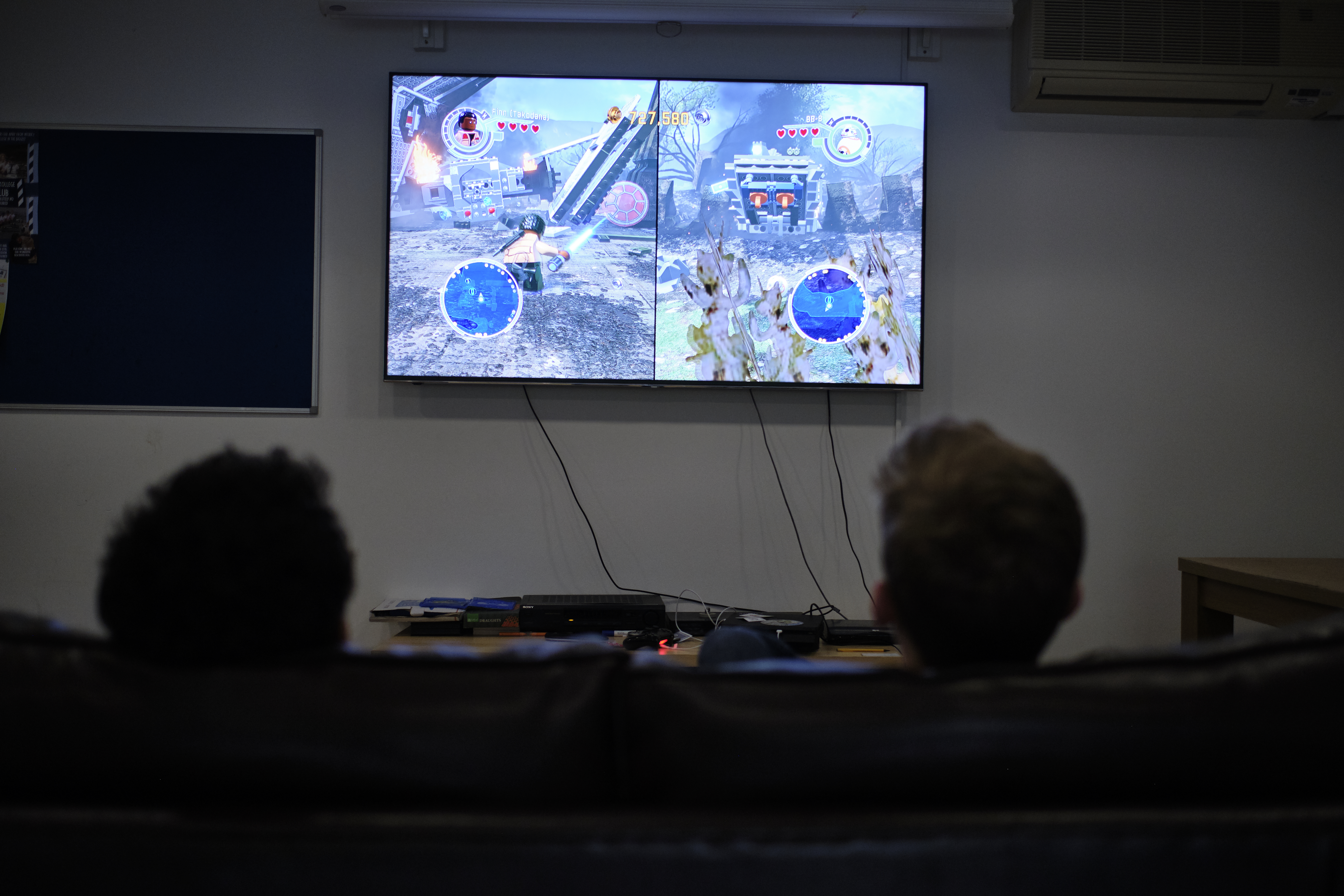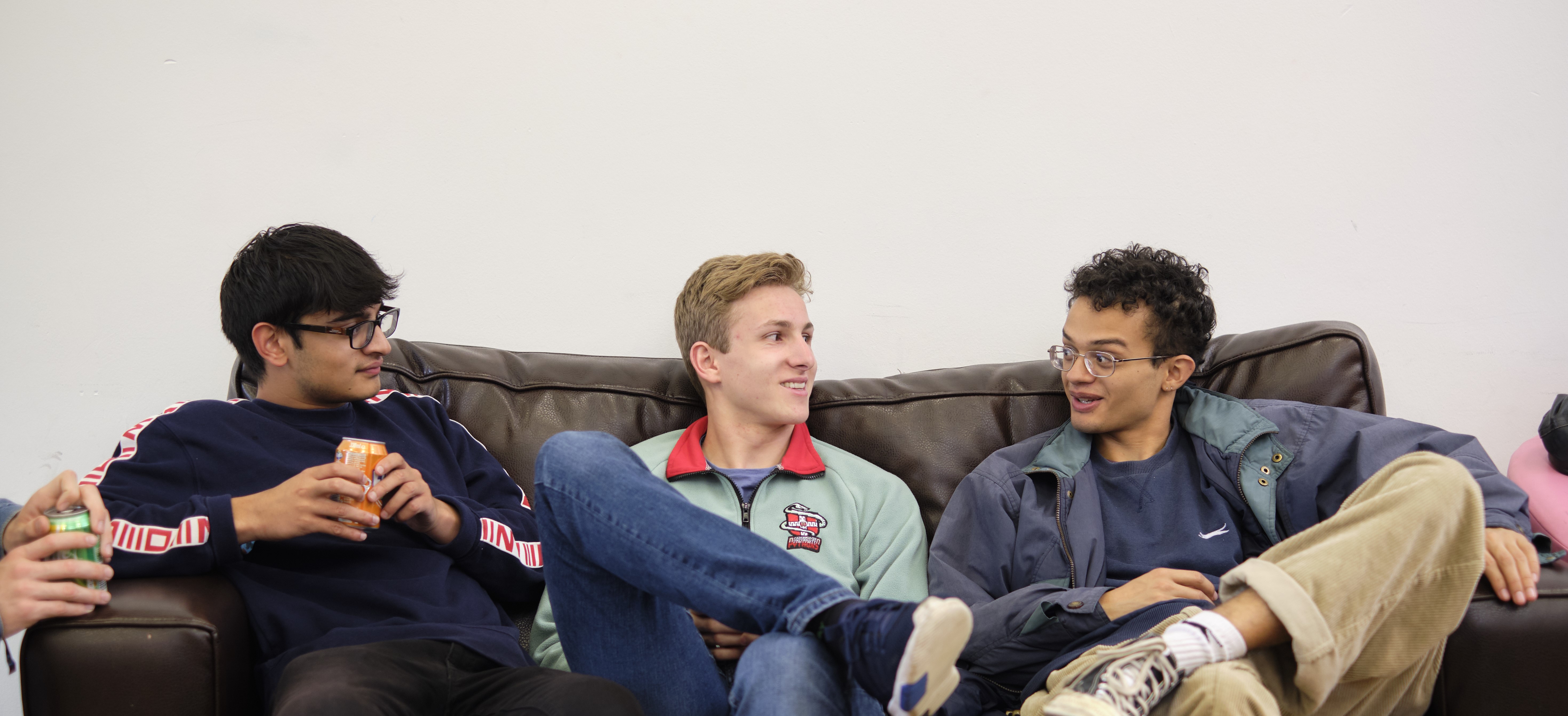"Living in College seems to scale the entire university experience down into more comfortable and accessible spaces, giving it a community-like feel."

Eebbaa is from Walthamstow (East London), and wrote this at the end of his first year studying History and Spanish here at Christ's College, Cambridge. Eebbaa applied as a post-qualification applicant after A-levels in History, Spanish, and English Literature.
What aspects of your course attracted you to it specifically?
I think both History and Modern Languages really benefit from being taught through the Cambridge supervision system. In History, having one-on-one supervisions with an expert on the topic allows you to make the course even more flexible as you can choose the topics that interest you within a paper. It also really helps language practice, as you are able to practice speaking in very small groups with a native speaker.
The Cambridge History course is also famously broad, giving me lots of opportunity to study areas and periods I’d not yet had the opportunity to. Although there is still much work to be done in terms of diversifying the curriculum (and many student campaigns calling on the university to do so), there has been more of an effort to go beyond British and European history here than at other universities. The MML course, despite being quite literature-heavy, also gives you the opportunity to study Linguistics (some papers in second year can be borrowed from the Linguistics course) and even to pick up another language (Portuguese or Catalan for Hispanists) in later years.
What do you think of the collegiate system at Cambridge?
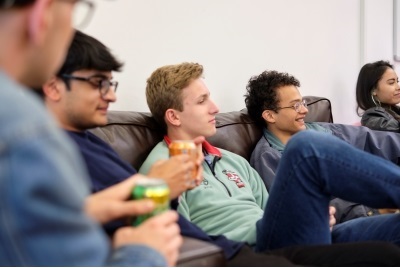
I think it’s really special and makes the transition to university easier both academically and socially. Living in College seems to scale the entire university experience down into far more comfortable and accessible spaces, giving it a far more community-like feel. It provides constant and accessible networks of support as you meet termly with your Director of Studies and Tutors so you always know you are being looked out for. It’s also really useful for making friendships as, particularly in freshers week, you are living and eating with, and constantly bumping into, the same group of people. I spend surprisingly little time at other Colleges during term time, as most of my teaching either happens in Christ’s or in the central faculties and Christ’s is so central that friends from other Colleges tend to come here!
Christ's has been really supportive of my studies throughout my first year. Along with everyone else in my year I received a book grant which was really helpful, especially when buying the books I was studying for Spanish this year. I also received two small grants to cover my food and accommodation for a few days at the end of term, to catch up on some of the work I hadn’t managed to finish. I've also been given two travel grants to fund travel to Spain to practice my language skills in the Easter and Summer holidays.
 What does the admissions process for History and Modern Languages involve?
What does the admissions process for History and Modern Languages involve?
I had to sit an admissions assessment (for Spanish). The fact that I can remember almost nothing of it suggests that you shouldn’t stress about them too much! I remember the best piece of advice about admissions assessments was given to me on an access visit to Cambridge a few years before. One of the admissions tutors reminded us that these would be the first tests we’d sit that was designed specifically for someone of our ability. Basically, it's normal and expected to find them quite difficult and you're not expected to know everything that's being assessed. Knowing this, I think, made me enjoy the challenge a bit more and try to respond to the information as creatively and intelligently as I could.
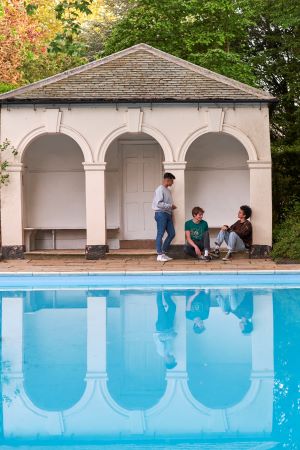
What was your admissions experience like?
I initially applied to King’s and received an offer from Christ’s after being placed in the Winter Pool. The Pool allows Colleges to make offers to applicants whose chosen College considered them to be working at a high level, but doesn't have space for them (if they have a lot of strong applicants in that subject). Although I sent all the parts of my application to King's and was interviewed at there, my experience in the pool was completely seamless. My only knowledge of it was when I got an offer email from Christ’s rather than King’s! Though I didn’t actually visit any Colleges before applying I was quite apprehensive about receiving an offer from Christ’s, given that I knew nothing about it. However, the admissions office arranged for me to have a tour after receiving my offer, and after seeing the College in person and meeting some of the students here I felt that it was somewhere I would be really happy to live and study. I was right.
What were your interviews like?
I remember the interviews being nowhere near as scary as I expected, and ironically far less intimidating and difficult than the mock interview I had had in school. I had one interview for History and one for Spanish. Both of them lasted about 25 minutes. In my History interview they asked me about the written work that I’d sent in, and in my Spanish interview I was given a poem and some grammar questions to prepare about 30 minutes before the interview. We discussed these in the interview, as well as speaking in Spanish for about 5 minutes.
I think it helps in interviews to be as engaged and enthusiastic (without it seeming forced) even if you don’t fully understand everything that is being discussed. Interviews in many ways are supposed to simulate supervisions that you would have if you get in, so interviewers want to know that you will enjoy and benefit from this style of interacting and learning. Be dynamic, interested and think carefully about what you say – but don’t overthink! I found asking a few questions throughout the interview helped show I was interested and listening to what they were saying, and also allowed me to bring a couple of things into the conversation that I felt more confident speaking about.
What advice would you give to prospective applicants?

I’d really advise against trying to ‘play the system’ at all - that is, applying to certain Colleges or certain courses which you think you’re more likely to get into, or even reading certain books that you think academics want you to. I think one of the main differences between my first (unsuccessful) Oxbridge application and this one was that I decided to read books that I was actually interested rather than those I felt would look good on a personal statement. For one thing this made me far more aware of exactly why I wanted to study my course but also meant I was far more enthusiastic and engaged when talking about them at my interview. For History I read Adam Hochschild’s ‘King Leopold’s Ghost’, furthering my interest in African history, and Deborah Lipstadt’s ‘History on Trial’ which allowed me to talk more about history as a discipline and a political tool. For Spanish I talked about both the literature I’d read and mentioned a few books on contemporary Spanish politics to show my interest in both. Of course there are certain bases you need to cover, but I think I became a far more attractive candidate when I began reading around the parts of my subjects which interested me most. This meant that, at interview, I could actually articulate why I was reading the things I was, and what interested me about them.
To prepare for the interview I made sure I knew my personal statement really well and basically went through it line by line and asked myself how I would develop each point I had made if I was asked about it at interview. Being genuinely interested in what you have read also really helps at interview where you can show, rather than just mention, your ‘passion’ for your subject. I wouldn’t write mention too many books in a personal statement as you want to be able to bring in your own ideas/interpretations on them. You can always bring up other things you’ve read in your interview. I also tried as hard as I could to link the Spanish and History sides of my personal statement, though I tried to avoid making this sound forced. This didn’t just mean reading around Spanish history, but also making connections between the two disciplines and discussing any similar or different conclusions I’d drawn from sources in each. However, it’s worth noting that admissions tests, interviews, and teaching for History and Modern Languages are fairly separate so this isn’t essential!
"I think I became a far more attractive candidate when I began reading around the parts of my subjects which interested me most."
Is there anything in your course that you've found challenging this year?
As History and Modern Languages was a very new course for my year, there were inevitably a few stumbling blocks as both students and academics got used to its structure. Juggling commitments to both departments was difficult at first, and I definitely needed to improve my time management skills. What I found most helpful was communicating well with supervisors in both departments, who were all very understanding and helped me to manage the workload better.
Which supervision(s) you have particularly enjoyed?
I really enjoyed a paper 21 history supervision I had with Professor Susan Bayly, at Christ’s on an essay I’d written about Latin American revolutions in the early 19th century. I had got really into the reading for the essay which obviously overlapped with a lot of my Spanish work (I even got to read a few sources in Spanish!) which meant I was far more enthusiastic and confident about discussing it with a supervisor. You should definitely pick papers that you think you will enjoy, not those that you think you should be studying!
I also really enjoyed my Spanish oral supervisions in first year. As their main purpose is to practice conversational Spanish you can get away with chatting about pretty much anything, and so although the conversations always started about a short text we’d been given to read they often quickly descended into fairly casual chats about anything and everything.
 What do you do when you’re not working?
What do you do when you’re not working?
I’ve got quite into student activism, doing quite a lot of work with Cambridge Zero Carbon Society, a group of students calling on the University to divest from fossil fuels. Recently, Christ’s students have set up our own campaign (Christ’s Climate Justice Campaign) which is lobbying for Christ’s also to divest. Christ’s hasn’t really had much of a reputation for being a very political college and so I was really excited by how many people here are politically engaged. Outside of this I joined Christ’s football and mixed lacrosse teams – both of which are very low commitment and a perfect excuse to get out of the library for a quick run-around on the weekend.
How do you tend to spend your holidays?
I normally come back home to London during the holidays. Although I live very near to Cambridge, term time is often so hectic that I don’t have time to come home, so holidays are a really nice time to relax with friends and family. Holidays in Cambridge aren’t entirely free from work, however, as we often have mocks in January. Also, most people start preparing for exams over Easter (as you would in school). The long, three month summer vacation makes it all worth it though! I also use holidays as an opportunity to work a bit to save up money for term time, when we’re not allowed jobs.
What are you looking forward to about next year?
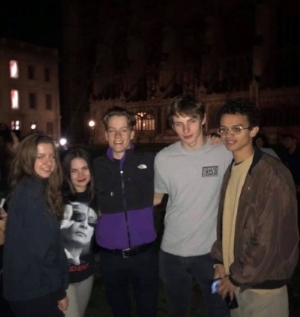
Next year I’ll be living in a College-owned house on Jesus Lane (just behind the College) with seven of my friends at Christ’s, which I’m really looking forward to. Hopefully it’ll be a good in-between, where we’ll get some degree of independence but still be able to rely on College for certain things.
In second year HML, you can choose whether you want to do slightly more History or slightly more of your language. Next year I’m doing two Spanish papers and one History paper. I also had the option to study Medieval Spain, linguistics, or even pick up a new language like Portuguese or Catalan, as well as the 20 other history papers covering almost 3000 years across 5 continents. In History I’ve chosen Paper 17 (European History 1715-1890). This is a really interesting period of history, which I’ve never had the opportunity to study, and fortunately the paper is taught by a fellow at Christ’s. For Spanish, alongside the compulsory language paper I’ll be studying SP4 and SP5 which look at the culture, history, art, and literature of Modern Spain and Latin America respectively.
September 2019
Please be aware if you're considering an application that our student writers describe their experiences. Although the majority of the information stays the same, some details may change from year to year. Do read the student profiles in combination with our undergraduate admissions pages for full information.
Back to Student profiles page / History and Modern Languages at Christ's / Next: Nik's profile
